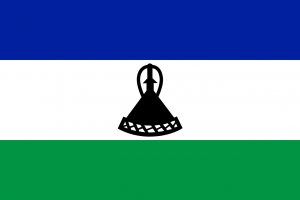Language/Southern-sotho/Vocabulary/Money-and-Currency
| ◀️ Shopping Vocabulary — Previous Lesson | Next Lesson — Family Structure ▶️ |
Introduction[edit | edit source]
In this lesson, we will delve into the world of money and currency in Southern Sotho. Understanding how to talk about money and make transactions is essential in everyday life, whether you are shopping, traveling, or simply managing your finances. This lesson will equip you with the vocabulary and knowledge you need to confidently handle money-related situations in Southern Sotho.
We will start by learning the Southern Sotho words for different denominations of currency, as well as how to ask for prices and make transactions. Along the way, we will explore interesting cultural facts and anecdotes related to money in the Southern Sotho community. So let's dive in and explore the fascinating world of money and currency in Southern Sotho!
Vocabulary[edit | edit source]
Currency Denominations[edit | edit source]
To start off, let's learn the Southern Sotho words for different currency denominations. Here are some common denominations you are likely to come across:
| Southern Sotho | Pronunciation | English |
|---|---|---|
| R2 | "Rōa" | 2 Rand |
| R5 | "Ratšhomo" | 5 Rand |
| R10 | "Lesome" | 10 Rand |
| R20 | "Lesometšo" | 20 Rand |
| R50 | "Lesome le leshome" | 50 Rand |
| R100 | "Lesome le lebone" | 100 Rand |
| R200 | "Lesome le lebobedi" | 200 Rand |
Now that you know the Southern Sotho words for these denominations, you will be able to understand prices and make transactions more easily.
Asking for Prices[edit | edit source]
When shopping or inquiring about the cost of something, it's important to know how to ask for prices in Southern Sotho. Here are some useful phrases:
- "Ke batla ntho ena, na ke tšoara joang?" - "I want this, how much does it cost?"
- "Ke batla go kgopela thepa." - "I want to request a discount."
- "Ke tla etsa jwang?" - "How much am I going to pay?"
By using these phrases, you can confidently ask for prices and negotiate if necessary.
Making Transactions[edit | edit source]
Once you know the price of an item, you will need to know how to make a transaction in Southern Sotho. Here are some phrases that will come in handy:
- "Ke tla bona ka thepa." - "I will pay with cash."
- "Ke tla tšwela ka karete ya banka." - "I will pay with a bank card."
- "Ke batla tšepe e kgolo." - "I want a big note." (referring to a large denomination)
These phrases will help you communicate your preferred payment method and any specific requests you may have during a transaction.
Cultural Insight[edit | edit source]
Money plays an important role in the Southern Sotho community, both in everyday life and on special occasions. In traditional Southern Sotho culture, it is customary to give and receive money as a sign of respect and appreciation. For example, during weddings or other celebrations, guests often present envelopes containing money to the hosts. This practice demonstrates support and goodwill towards the couple or the event organizers.
Furthermore, the Southern Sotho community values the concept of "Botho," which encompasses principles of respect, generosity, and integrity. These values often extend to financial matters, with individuals being encouraged to help those in need and contribute to the well-being of their community. This cultural emphasis on mutual support and generosity has shaped the Southern Sotho relationship with money and financial transactions.
Exercises[edit | edit source]
Now, let's practice what we've learned with some interactive exercises!
Exercise 1: Vocabulary Matching Match the Southern Sotho currency denominations with their English translations.
| Southern Sotho | English |
|---|---|
| R2 | a. 50 Rand |
| R5 | b. 2 Rand |
| R10 | c. 100 Rand |
| R50 | d. 5 Rand |
| R100 | e. 10 Rand |
| R200 | f. 20 Rand |
Solution: a. R50 b. R2 c. R10 d. R5 e. R100 f. R200
Exercise 2: Dialogue Practice Imagine you are in a market in Southern Sotho and you want to buy a traditional souvenir. Practice a dialogue with a shopkeeper using the vocabulary and phrases we learned in this lesson.
Example dialogue: You: "Ke batla lefiso la setšoane, na ke tšoara joang?" (I want a traditional souvenir, how much does it cost?) Shopkeeper: "Lefiso la setšoane le tšoarwa ka R50." (The traditional souvenir costs R50.) You: "Ke tla bona ka thepa." (I will pay with cash.) Shopkeeper: "Ke a leboha. Ke batla go kgopela thepa?" (Thank you. Do you want to request a discount?) You: "Ee, ke batla go kgopela thepa." (Yes, I want to request a discount.)
Conclusion[edit | edit source]
Congratulations! You have successfully learned how to talk about money and currency in Southern Sotho. You can now confidently ask for prices, make transactions, and engage in financial interactions in Southern Sotho-speaking contexts. Remember to practice your new vocabulary and phrases in real-life situations to reinforce your learning. Well done, and keep up the great work!
Other Lessons[edit | edit source]
- Eating Habits
- How to say Good Bye?
- Drinks
- Days of the Week
- Daily Routines
- How to Say Hello and Greetings
- Feelings and Emotions
- Modes of Transportation
- Hobbies and Interests
- Count to 10
| ◀️ Shopping Vocabulary — Previous Lesson | Next Lesson — Family Structure ▶️ |

